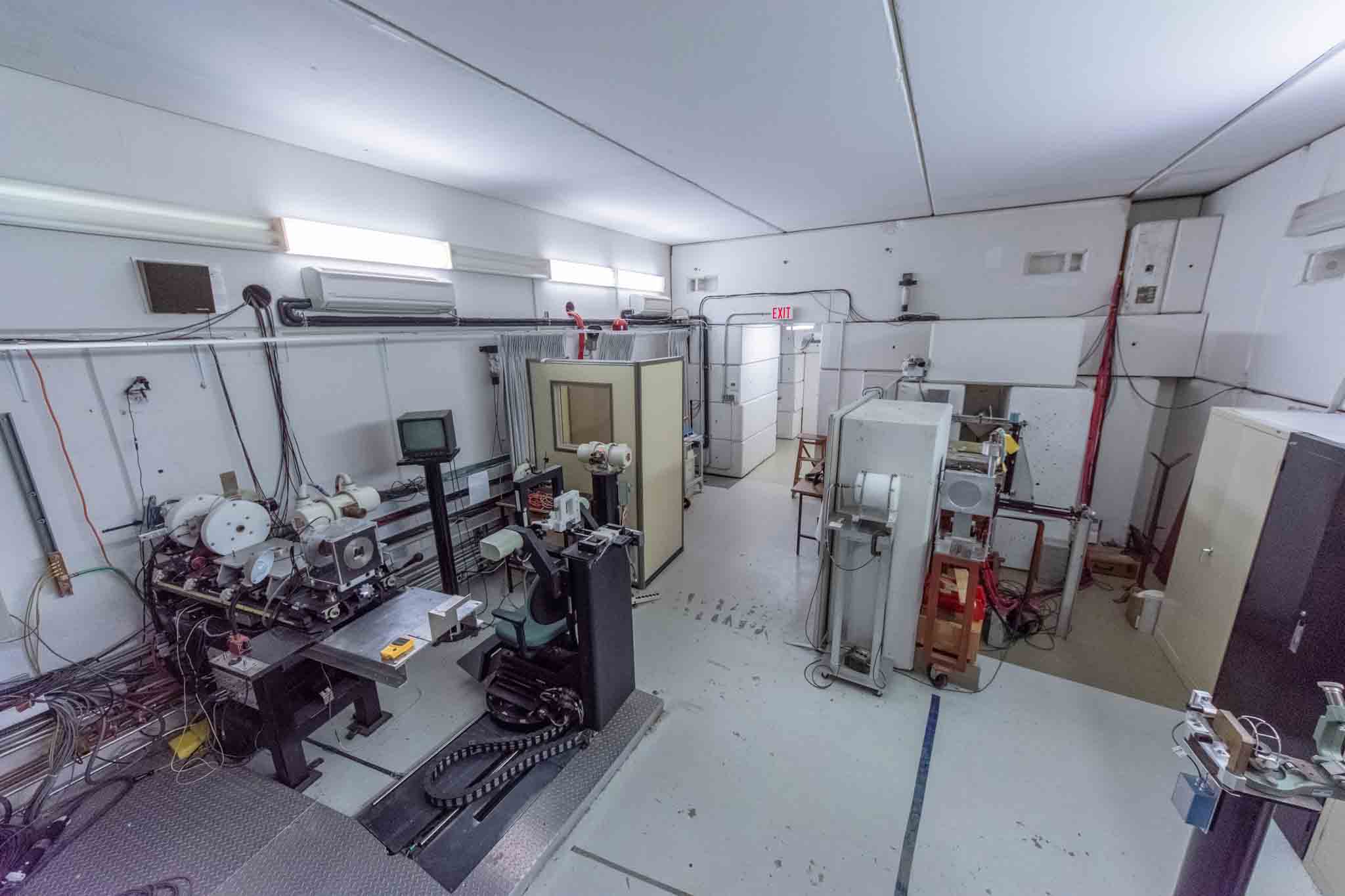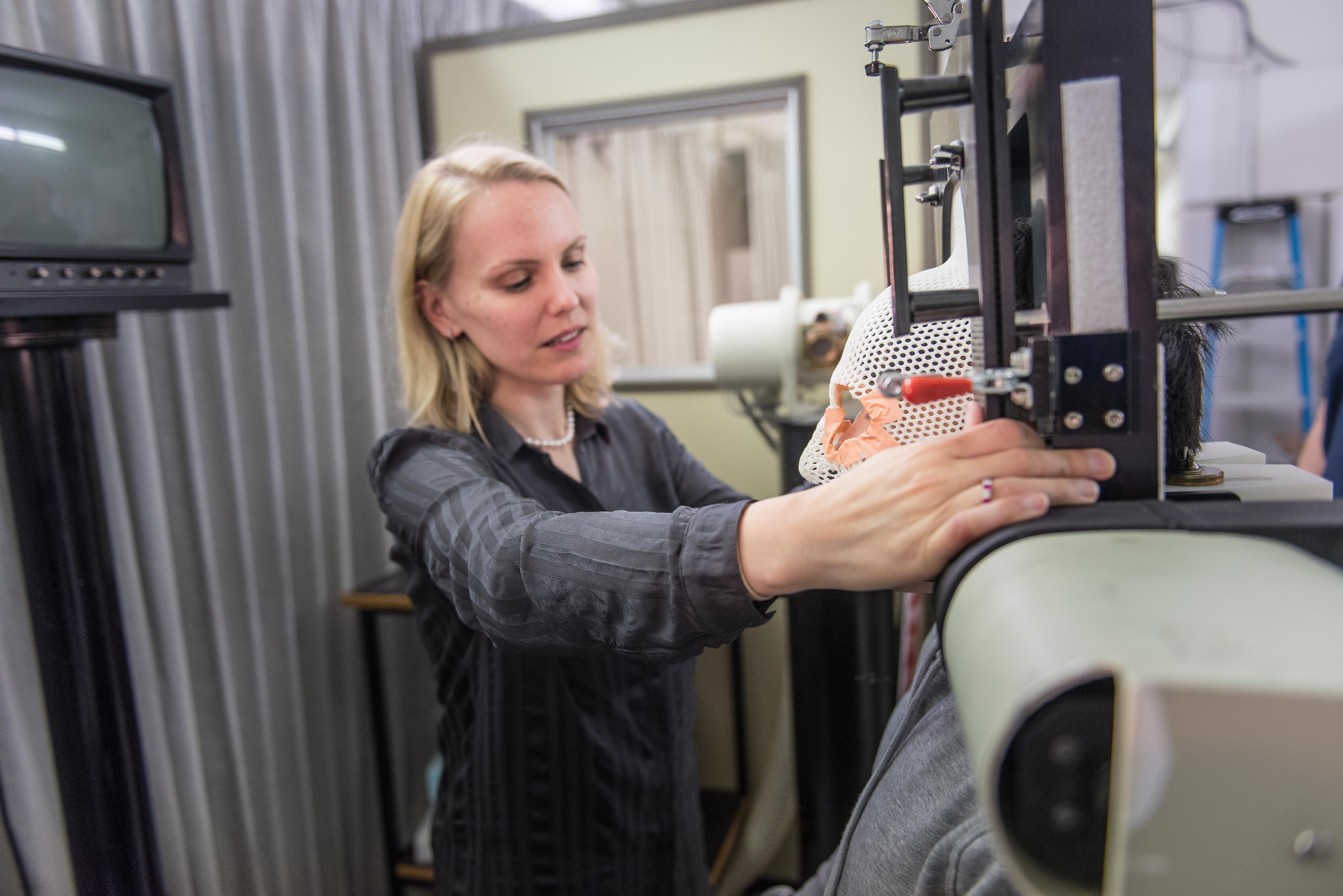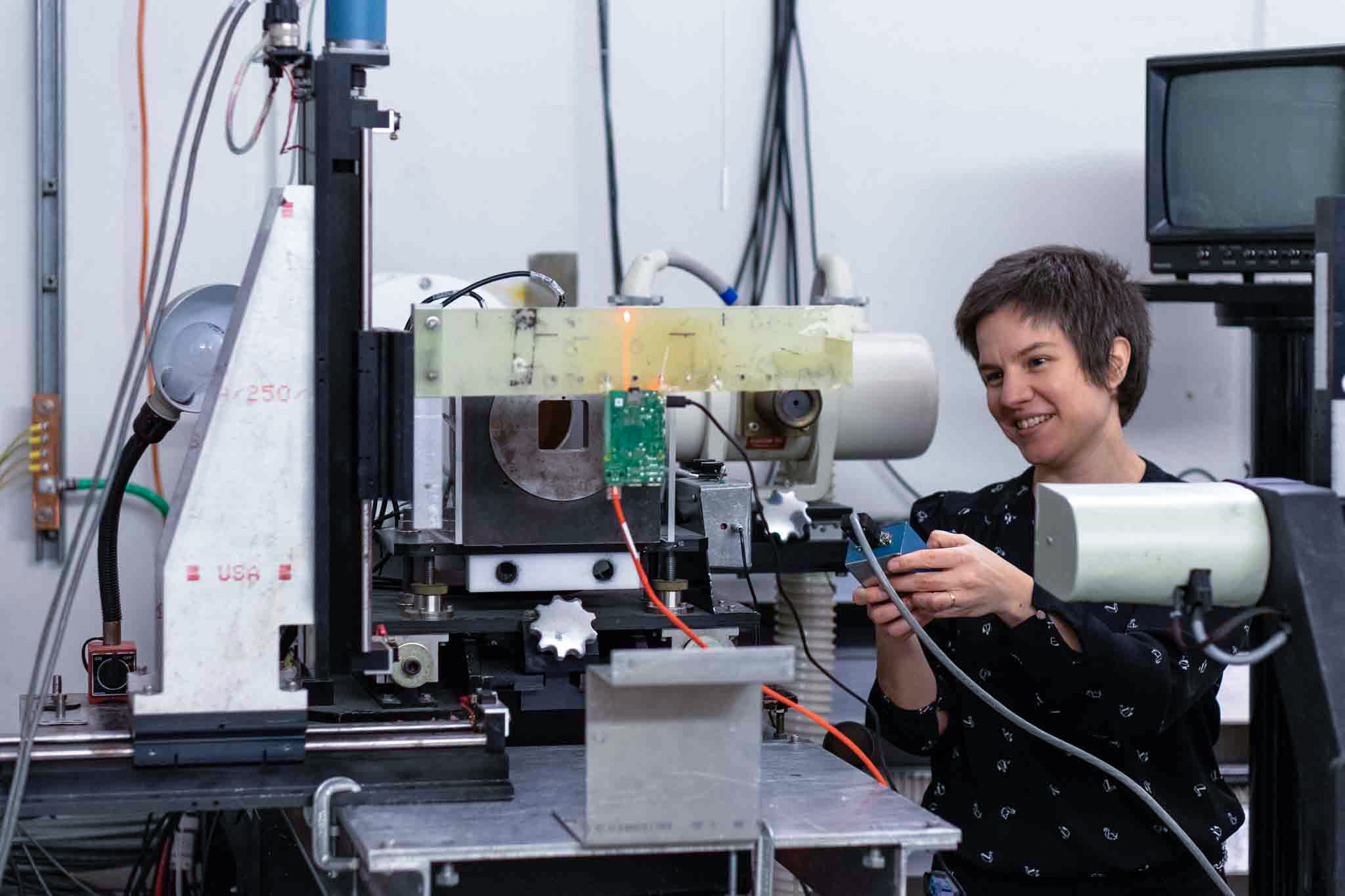TRIUMF has joined RADNEXT (‘RADiation facility Network for the EXploration of effects for indusTry and research’), a five million euro Horizons 2020 infrastructure project that will fund different work packages and establish a global network of facilities and related irradiation methodology for responding to the emerging needs of electronics component and system irradiation. In addition, the project aims to combine different irradiation and simulation techniques for optimizing radiation-hardness assurance for systems, focusing on the related risk assessment.
The RADNEXT network will contribute to a variety of research initiatives and provide a wide network of irradiation facility support to enable testing for state-of-the-art microelectronics and support for technology development in areas such as aerospace, automobiles, nuclear dismantling, medicine, and more. One of the network’s chief goals is to provide more than 6000 hours of peer-reviewed transnational access to irradiation beamtime over the next four years. Proposals will be sought from relevant industrial and academic groups for access to testing facilities along with consultation and training from radiation-effects experts.
“Globally, society is becoming more and more dependent on highly complex technological systems, many of which are, to different extents, vulnerable to the effects of radiation whether in space, air or at ground levels,” said Michael Trinczek, TRIUMF staff scientist and Manager of the laboratory’s Proton and Neutron Irradiation Facilities (PIF & NIF). “This network is an important step towards addressing these issues and building upon research that spans many decades. RADNEXT will provide much-needed insight into the implications of radiation effects and technology development; it will also provide critical training opportunities for the next generation of scientists, engineers, and technicians in a wide range of fields across the spectrum of technology and innovation.” 
Image: TRIUMF’s Proton and Neutron Irradiation Facilities (PIF & NIF)
TRIUMF is the only non-European organization selected to participate in RADNEXT, which brings together 38 partners from industry, academia, and national laboratories and research institutes, including the Paul Scherrer Institute, GSI Helmholtz, and the Rutherford-Appleton Laboratory.
TRIUMF’s contributions to RADNEXT represent an important step in the lab’s positioning as a key player in the global ecosystem of irradiation facilities. This new partnership builds on more than a decade of strategic development for PIF & NIF, as well as the team’s work towards establishing Canada as a leader in irradiation research and testing.
“Our network of RADNEXT colleagues recognize that we have been working hard to build world-leading infrastructure, facilities, and a team of experts that can position TRIUMF and Canada as invaluable partners in this field,” said Trinczek.
“Further, we anticipate that our participation in RADNEXT will enhance the existing economic impact driven by PIF & NIF by bolstering Canada’s knowledge economy with highly qualified personnel development, as well as strengthening and broadening TRIUMF’s relationships with industry partners.”
TRIUMF will be contributing to RADNEXT’s work packages pursuant to two main streams: research and facilities access. 
Image: Cornelia Hoehr, Deputy Associate Laboratory Director, Life Sciences Division, and Department Head, Research & Development
TRIUMF’s Cornelia Hoehr, Deputy Associate Laboratory Director, Life Sciences Division, and Department Head, Research & Development, is leading TRIUMF’s contributions to the work package ‘Radiation monitors, dosimeters, and beam characterization.’ As a Deputy Work Package Leader, Hoehr will pursue:
- the investigation of innovative instrumentation regarding their potential high impact on facility operation and optimization of radiation to electronics testing;
- the development and characterization of low-cost detectors and dosimeters for use across the RADNEXT network; and
- correlating identified needs with established or innovative solutions for monitoring, beam parameters, and other facility characteristics across the RADNEXT network
Camille Bélanger-Champagne, PIF & NIF's Coordinator, is a voting member of the Project Consortium Board as the Scientist-in-Charge representing TRIUMF. She will also be supporting TRIUMF's RADNEXT contributions as the Facility Contact for PIF & NIF, playing a consultation role to the User Selection Panel on the feasibility and suitability of experimental proposals and coordinating PIF & NIF facility access and support. 
Image: Camille Bélanger-Champagne, PIF & NIF Coordinator
“RADNEXT is extremely pleased to have TRIUMF as part of the network,” said Rubén García Alía, a Radiation-Effects Physicist from CERN who serves as the RADNEXT Project Coordinator. “TRIUMF’s involvement will be both through providing transnational access to their unique irradiation facilities, as well as related to their expertise in dosimetry and beam characterization. Indeed, the TRIUMF infrastructure and highly qualified radiation-effects team are key assets to the project.
“As a Ph.D. student, I performed my main radiation-effects experiment at TRIUMF, exploiting the 500 MeV proton irradiation capacity,” added García Alía. “I was truly impressed by the facility and related user support and collaboration with their experts – which makes me even happier to work with TRIUMF on RADNEXT.”
“TRIUMF being tapped to join RADNEXT is a tremendous vote of confidence in PIF & NIF, and a testament to the strong track record of success that our team has achieved in establishing TRIUMF as a preeminent destination for irradiation-based research and testing in Canada,” said Reiner Kruecken, TRIUMF Deputy Director, Research. “We look forward to the new opportunities that this collaboration will bring for TRIUMF’s academic and industry networks, and for Canada at large.”
TRIUMF's PIF & NIF continue to serve as Canada's premier centre for radiation-effects testing, providing beams of protons and neutrons for nearly 200 users from over 50 different companies, laboratories, and universities each year. The facility's capacity for proton beam testing also supports several research initiatives for TRIUMF's Proton Therapy Research Centre, including FLASH therapy.
The RADNEXT kick-off meeting was held on May 19th; the call for proposals is now open via https://radnext-network.web.cern.ch/main/transnational-access/. The deadline to apply is July 15, 2021.
